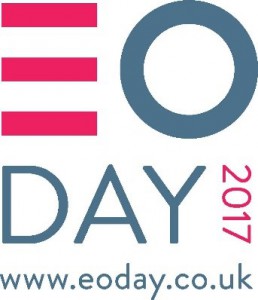National Employee Ownership Day – 2017
Thu 29 Jun 2017

30 June is National Employee Ownership Day in the UK this year.
The purpose of EO Day is to highlight the benefits of employee ownership to business, whether this is direct ownership, using share plans, or indirect ownership using an employee ownership trust and following the well known John Lewis model; or a hybrid approach using a combination of direct and indirect ownership.
Interest in the wider spectrum of employee ownership possibilities has broadened, especially since Finance Bill 2014 introduced a number of new tax reliefs to support wider employee ownership. It is these more recent tax reliefs that now make this a particularly attractive consideration when thinking about business ownership succession.
The Government has allocated tax relief measures, which are summarised below:
- a capital gains tax relief on the disposal of a controlling interest of shares into a trust, where a qualifying trust is used as a vehicle for indirect employee ownership (an uncapped tax-free gain on disposal – particularly attractive to anyone who has already exhausted their £10 m lifetime limit for entrepreneur’s relief). – Businesses which have evolved from partnerships, maintaining a partnership culture within the organisation and those that value enduring independence find this structure especially appealing,
- the annual limits for awards under a Share Incentive Plan (SIP) have been increased to £3,600 for Free Shares and £1,800 for Partnership Shares – this is a particularly tax efficient all employee plan suitable for larger employers. (see our other blog here for further benefits of SIP)
- capital gains tax rates are low (20% or 10%) and with annual exemption of £11,300, making equity an efficient form of award. Gains on matured SIP shares are tax-free, making this award framework particularly attractive.
- transfers of shares and other assets to qualifying employee ownership trusts will also be exempt from inheritance tax (IHT) providing certain conditions are met.
- an income tax exemption on up to £3,600 per annum in bonuses or equivalent payments for employees of companies that are indirectly employee owned through a qualifying trust. (Employer and employee National Insurance still applies.)
- the Enterprise Management Incentive (EMI) remains a flexible and popular plan for qualifying entrepreneurial businesses (under 250 employees) delivering rewards at a low 10% tax rate, even for non-voting equity stakes. (This plan is particularly prevalent in recruitment, tech and pharma sectors as a way to retain key staff but other industries use this framework too.)
- for those pursuing direct employee ownership, where employees can become shareholders in their employer corporate group, the current dividend tax regime means that employees holding shares can receive up to £5,000 in dividends per annum tax-free (this dividend allowance is applied to a shareholders aggregated dividend income across their entire shareholding portfolio.)
Why should a business consider employee ownership now?
With the economic climate still challenging and auto-enrolment, apprenticeship levy, national minimum and living wage and other costs all putting a squeeze on an employer’s purse, many companies cannot afford to pay their employees much more in cash. FDs are looking to preserve or enhance cash flow and do not wish to incur additional pay outlay, especially when you add on the on-costs of NICs and other benefits. Instead, companies are increasingly looking to provide rewards in the form of shares, because equity pay can be designed to give corporate tax deductions, no income tax or NICs and no cash flow out of the business. If profits go down, pay-outs from equity awards could be cut back too, creating a true alignment of pay for performance.
For some an external exit and employee participation, under a share plan, in such sale proceeds is a commercial goal. Yet even, or perhaps especially, for those business owners who might prefer independence to a traditional trade sale and who wish to see their venture continue sustainably over the longer term, an employee ownership trust can provide a framework for efficient succession handover, secure in the knowledge that there is appropriate stewardship in place.
Where’s the evidence it works?
For those of you who would like to see the empirical evidence that employee ownership improves corporate performance, have a look at the employee ownership index.
Free consultation offer and contact us to find out more
To celebrate EO Day we are offering a free initial consultation call or meeting to any business looking to discuss matters further, whether this is for UK only or with an internationally mobile workforce and a desire for global awards.
And just a final reminder about share plan care and maintenance and return filing deadline
Also, just a reminder that time is running out for finalising all share plan and employment-related securities annual compliance returns. These usually need to be filed online with HMRC by 6 July however due to an HMRC online system outage in April and May the deadline for 2016/17 returns has now been extended to 24 August 2017.
HMRC are also operating an aggressive employer compliance initiative at present with on-site visits to employers to check employment tax and share plan records. If you wish support with such a review or wish to proactively health-check, update or optimise your existing arrangements then please contact us as we’d be pleased to help.
Contact: Liz Hunter, Head of Share Schemes, Mazars LLP Email: liz.hunter@mazars.co.uk




Comments